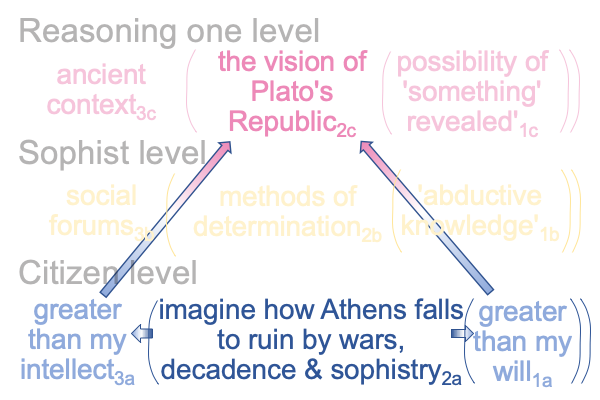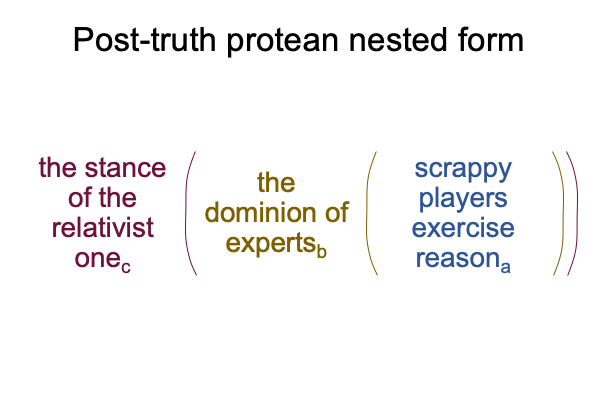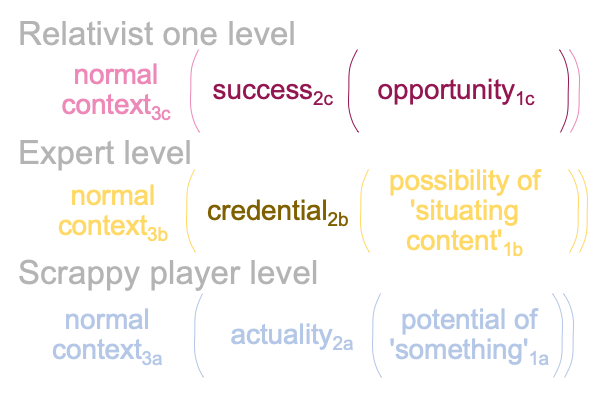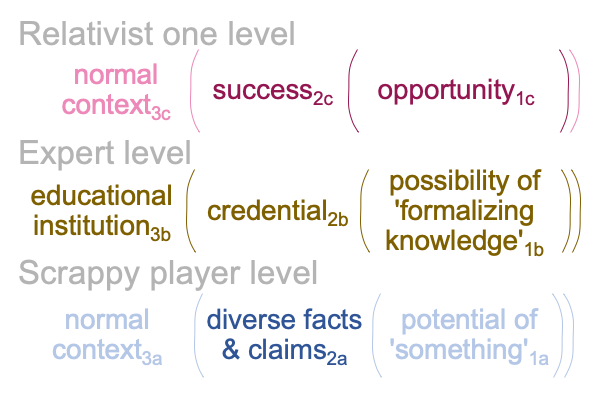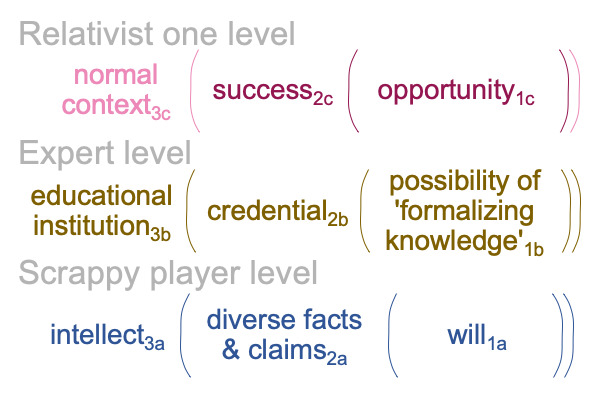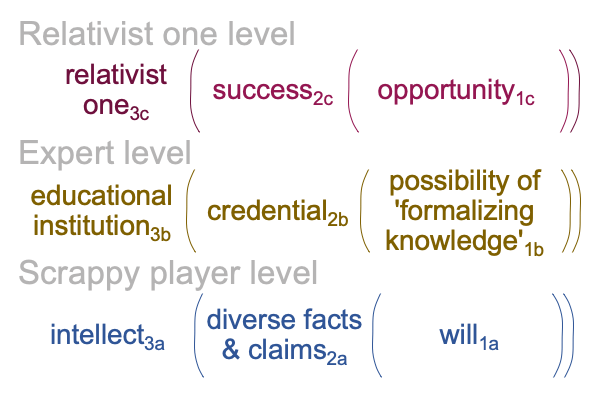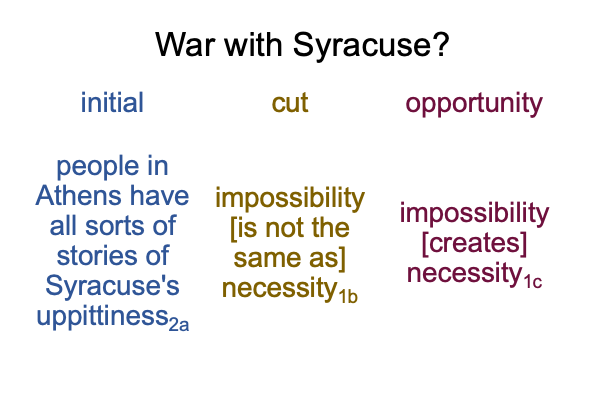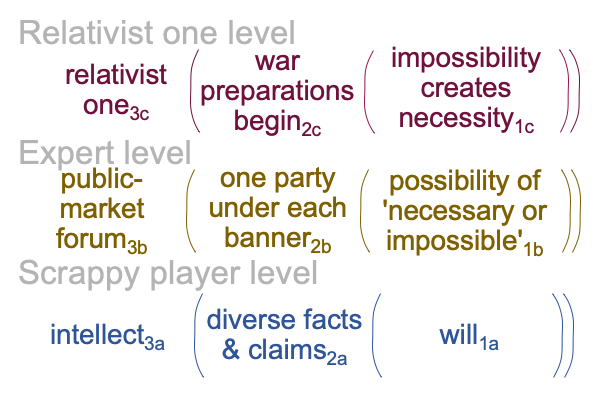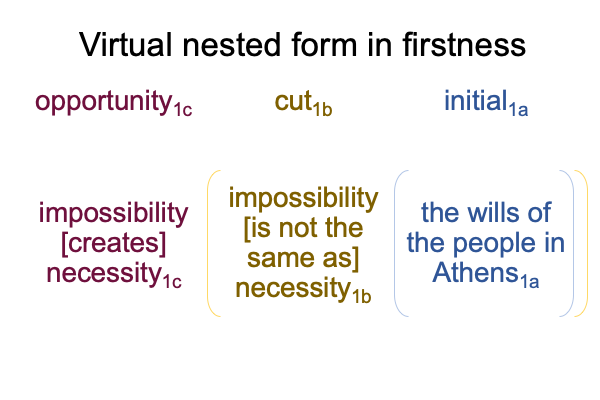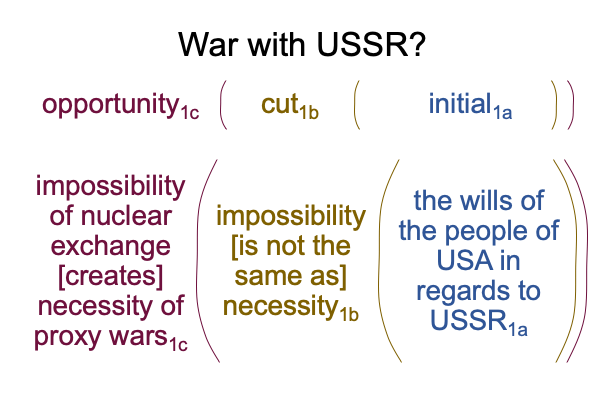Looking at Josef Pieper’s Book (1974) “Abuse of Language, Abuse of Power” (Part 8 of 8)
0826 Needless to say, the trader with refined reason3c belongs to one of the finest families in Athens.
The ancients have a saying, “The best, corrupted, become the worst.”
Abuse of power goes hand in hand with abuse of language.
Abuse of language manifests in the realm of possibility1.
Abuse of power develops in the realm of normal contexts3.
0827 Here is a picture.
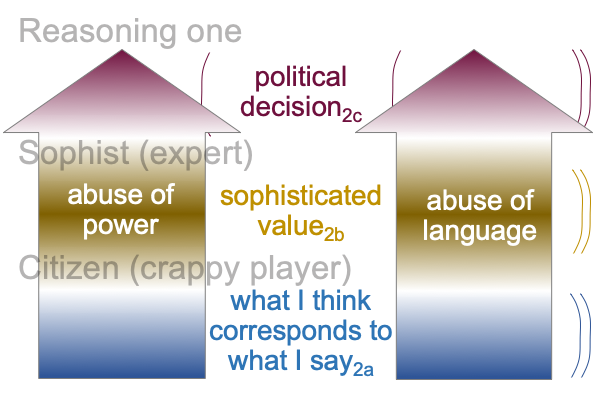
0828 The actualities2 of the sophist interscope are topics of gossip and conversation.
0829 Does the sophist really believe what he says?
Is the idea that Athens should economically sanction Syracuse not the same as “war”?
Well, it is and it isn’t.
What is the definition of the word, “war”?
And finally, what about the enforcement of the sanctions?
Of course, Athenian troops can stop ships from Syracuse from docking, but is that enough?
I hear rumors that ships are now simply bypassing Athens and going to Thebes.
0830 In the forum, the bought-off… er… well-paid sophist hears what people are saying. He has a ready reply, “Thebes is causing a problem. We should think about going to war with Thebes. Not, this weak-kneed sanction business, but full-fledged conquest.”
0831 It’s like selling candy to a baby.
This is what Plato sees.
0832 What is there to stop the sophists3b and their behind-the-scenes sponsors3c?
If a reasonable person3a,1a adopts the sophist terminology, then the reasonable person3a,1a buys into the way that the sophist3b has framed the citizen’s reality and understanding.
Consequently, even the reasonable person’s thoughts are tainted, because what he says (using a word whose meaning, presence and message has been tweaked by the sophist) cannot correspond to what he thinks (because he thinks in terms of the traditional meaning, presence and message of the spoken word).
0833 A citizen may ask, “Would sending a delegation to Thebes asking what is going on be a way to avoid war?”
The sophist replies, “No, Athena forbid! Sending a delegation would be an act of war. Obviously, the traders in Thebesalready are trying to take advantage of our conflict with Syracuse. We all know that ships from Syracuse are docking in Thebes. Sending a delegation would only tip them off, so they would attack us, with the assistance of Syracuse, before we can attack them.”
0834 The sophist interscope supports ruinous political decisions.
But, does the sweetness of refined reason3c turn to bitterness?
Or does the fish rot from the head, down?
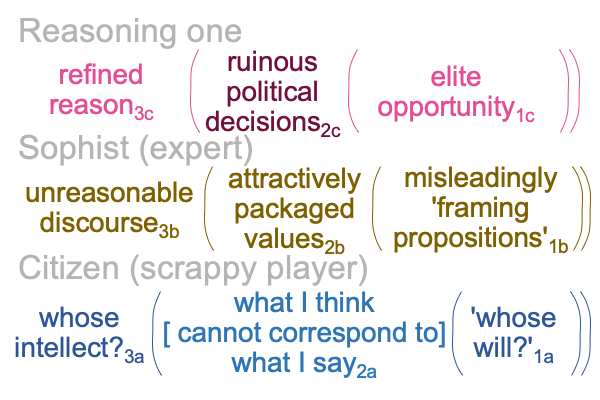
0835 The one who pays to support refined reason3c no longer believes that refined reason3c is right reason. Instead, it is a way to gain advantage1c by promoting political decisions2c that favor the elite, rather than all citizens. Without a doubt, the most advantageous political decision2c is the one2c where public citizens bear the risks and costs and private elites gain the benefits.
0836 Today, experts2b call these arrangements, “public-private partnerships”. The arrangement sounds attractive, “the public” (that is, a government bureaucracy) works with “private” citizens (that is, very wealthy operators) in order to accomplish goals that neither can achieve alone, such as an active war with Thebes while engaging in sanctions with Syracuse.
Finally, the citizen becomes confused and starts saying what the sophist says as if it is his own thought. Sanctions are war. Diplomacy is war. Thebes and Syracuse must be defeated. No one quite knows why, because reason3a,1a itself has fallen into sophistry2b.
0837 Tyranny is near when reason3a,1a falls into sophistry2b, because a dictator and his allies may declare what one can say, as if that is the gateway to what one can think. Citizens who have fallen into sophistry have no defense and end up blaming those who speak against sophistry.
0838 Weirdly, this is the topic is covered from a completely different approach, in the ninth and tenth primers of the series, How To Define the Word “Religion” and Related Primers, by Razie Mah, available at smashwords and other e-book venues. The titles are A Primer on Classical Political Philosophy and A Primer on Another Infrasovereign Religion.
0840 So, what was Plato’s problem?
We all know what happened to Socrates.
His admirers and compatriots, including Plato, were devastated.
Plato could only stop, and lay flat, and look into the empty sky.
And, an interventional sign-relation comes to be.
